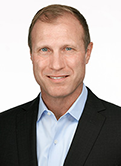
Navigating Through Health and Mental Health Challenges in a COVID-19 Environment
By John Feltz
Vice President and Regional Benefits Director
Parker Smith & Feek
Original Publish Date: June 2, 2020
On the many calls and Zoom meetings I am having with friends, the inevitable question asked early in the conversation is simply, “How are you doing?” The intent isn’t to see if we have Covid-19; it is a recognition that this new environment is having a significant emotional impact on us all. It’s code. The expected response is that we are “not okay.” The hope on the other end of the line is that we will ask the question in return so that they can share that they are also “not okay.” Strangely enough, it turns out that being “not okay” right now is actually okay.
We are unsure of what life we will look like coming out of this pandemic. Stress and uncertainty are contributing to personal and professional discomfort and anxiety, which is impacting our well-being. One of the more promising trends in pre-pandemic mental health was a significant reduction in stigma associated with mental health disorders. Further decreasing this stigma will lead to better overall well-being for ourselves, our families, and our coworkers and employees, but only if we can access the help we need.
WHY IS THIS IMPORTANT?
First, consider that about 18.9% of the American adult population has a mental health disorder, and 60% of American adults have a chronic medical condition. Next, consider that overall treatment costs are two to three times higher when mental and physical conditions are combined.
The pandemic isn’t helping. A recent study from a prominent pharmacy benefit manager has shown a 34% increase in the utilization of anti-anxiety medications in four short weeks during the Covid-19 pandemic.
Existing factors in our society were contributing beforehand, too. Loneliness has been increasing in our society; people were feeling more disconnected than ever before the pandemic. Opioid addiction may have been our greatest national challenge in decades. Expand this to include the fact that the millennials and Generation Z who make up a majority of the workforce, are traditionally less stigmatizing and more apt to desire mental health help and resources. It is easy to see why demand on the system is increasing very rapidly and manifesting in costly rises to health plan expenses in both behavioral and pharmacy claim activity, significantly outpacing overall medical trends.
Outside of these increasing costs to insurers (typically passed through to employers and their employees), presenteeism and productivity are significantly affected by poor mental health. Also compounding the problem, depressed individuals are twice as likely to leave their jobs than those without depression. Remember that just a few short weeks ago, we were in an unprecedentedly tight labor market, making effective and productive workers more valuable than ever before.
Herein lies our significant challenge moving forward: this rise in demand is being met with a substantial decline in the supply of mental health providers. As many baby boomer clinicians retire, fewer professionals are moving in to replace them. When you, your spouse, or your kid needs help, how simple will it be to quickly find a resource in a time of heightened emotion and need? I imagine that almost everyone has a story about how finding mental health treatment has affected them or someone they are close to. I’ll give you a hint if one doesn’t come to mind: it’s not easy to find a provider, and then comes the gut check of seeing if they accept your insurance. Those with children may be interested to know that the use of antidepressants in teenagers rose by 38% between 2015 and 2019.
FINDING THE KEEPERS
However, not everything we are experiencing during this pandemic is negative, and my team of benefits experts has been focusing on a theme of “what we keep and what we leave behind.” The goal is to channel the energy from our anxiety into achievable goals for ourselves and our customers.
When it comes to mental health and insurance programs, we need to look to the vehicles being deployed during the pandemic and positive progress being made to find the “keepers.” The best example is the increased availability and utilization of virtual health and EAP providers. Another is that many insurance carriers are quickly enabling standard behavioral providers to complete mental health visits telephonically at the same reimbursement rates of in-person visits. A third is that some insurance carriers are expediting access to prescribing physicians within a couple of weeks, which is important because the average delay in seeking treatment can range between one to 30 years depending upon geography and condition.
Buying patterns are changing, and healthcare consumers are looking at care access points and costs in a new light. The hope of enabling consumerism through enhanced services and technology just needed a pandemic to drive real engagement.
As we begin to reopen society, we will soon shift our place in psychologist Abraham Maslow’s hierarchy from “basic needs” to something more normal. Our focus in employee benefits will once again become taking care of our human capital and providing a safe and thriving work environment. The new normal will likely not be the same as the old; we will need more and better mental health resources to ensure a balance in the scales of supply and demand.
The good news is that there is innovation occurring, solid progress being made, and hope to be had.
John is a Vice President and Regional Benefits Director with Parker Smith & Feek based in Bellevue, WA. He supports the acquisition and retention of clients, as well as providing strategic direction and guidance to our benefits account teams. He can be reached here